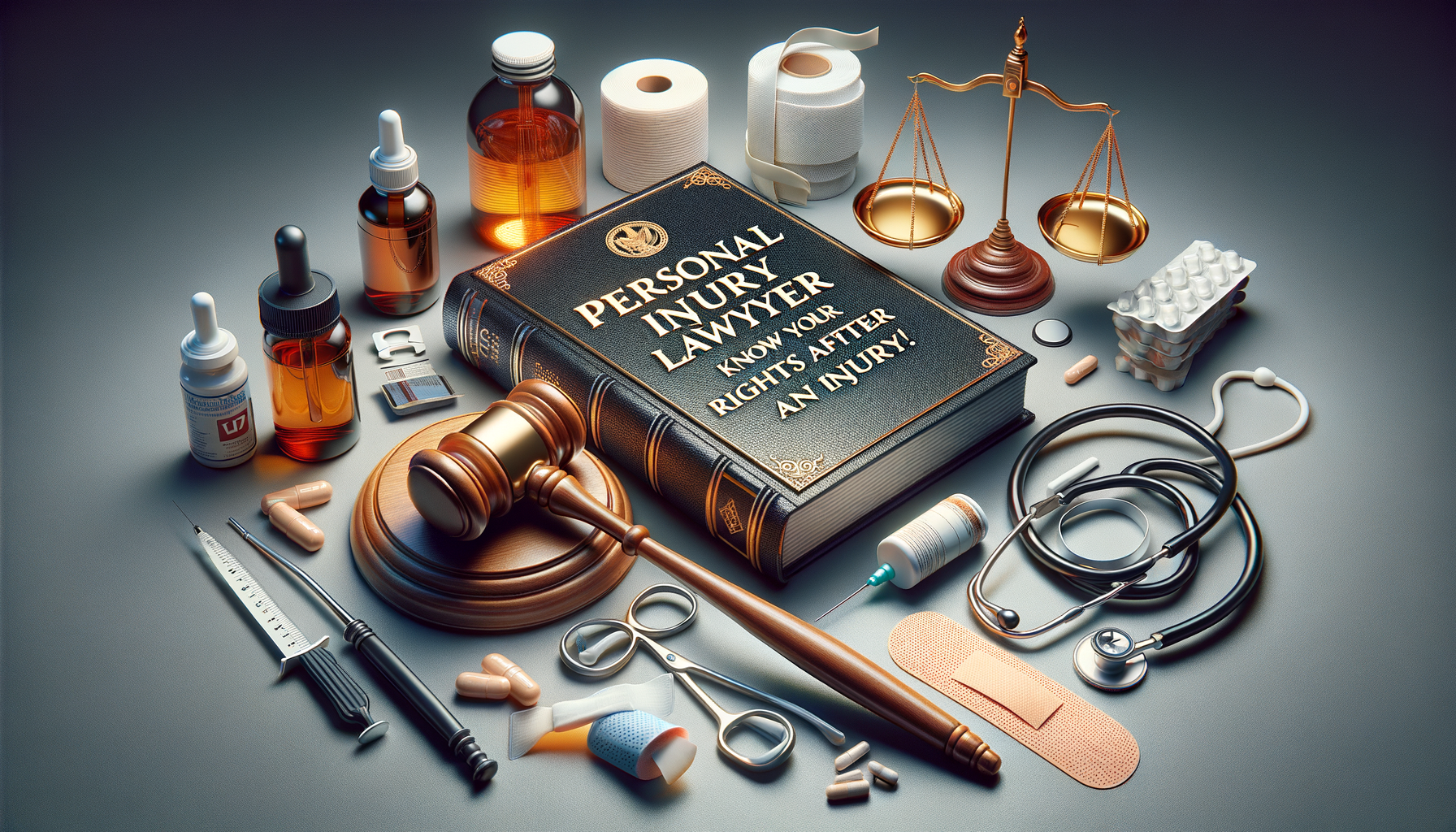Understanding Personal Injury Law
Personal injury law is a vital aspect of the legal system that helps individuals who have been harmed due to the negligence or wrongdoing of others. It covers a wide range of incidents, from car accidents to slip and falls, and even medical malpractice. The primary goal is to provide compensation to the injured party to cover medical expenses, lost wages, and other damages. Understanding the intricacies of personal injury law can be challenging, but it is crucial for anyone who finds themselves in such a situation.
One of the key elements of personal injury law is the concept of negligence. To succeed in a personal injury claim, the injured party must prove that the other party was negligent and that this negligence directly caused the injury. This involves demonstrating that the responsible party had a duty of care, breached this duty, and caused harm as a result.
Personal injury law also encompasses various types of damages that can be claimed, including:
- Medical expenses: Costs incurred for treatment and rehabilitation.
- Lost wages: Compensation for income lost due to the inability to work.
- Pain and suffering: Compensation for physical and emotional distress.
- Loss of consortium: Compensation for the impact on relationships with family members.
Understanding these aspects is essential for anyone considering a personal injury claim, as it helps set realistic expectations and prepares individuals for the legal process ahead.
The Role of a Personal Injury Lawyer
A personal injury lawyer plays a crucial role in navigating the complexities of personal injury law. They serve as advocates for their clients, ensuring that their rights are protected and that they receive fair compensation for their injuries. The expertise of a personal injury lawyer is invaluable in building a strong case and negotiating with insurance companies or opposing parties.
Personal injury lawyers are responsible for several key tasks, including:
- Investigating the incident: Gathering evidence, interviewing witnesses, and reviewing medical records to build a compelling case.
- Negotiating settlements: Engaging with insurance companies to secure a fair settlement that covers all damages.
- Representing clients in court: If a settlement cannot be reached, the lawyer will represent the client in court to fight for just compensation.
Their expertise in legal procedures and understanding of the nuances of personal injury law make them indispensable allies for anyone seeking justice after an injury. By handling the legal complexities, personal injury lawyers allow their clients to focus on recovery and healing.
When to Hire a Personal Injury Lawyer
Deciding when to hire a personal injury lawyer can be a pivotal decision in the aftermath of an accident. While not every situation requires legal representation, there are specific scenarios where hiring a lawyer becomes essential. Understanding these circumstances can help individuals make informed decisions about seeking legal assistance.
Some situations where hiring a personal injury lawyer is advisable include:
- Severe injuries: If the injuries sustained are significant and require extensive medical treatment, a lawyer can help ensure that all medical expenses and future care costs are covered.
- Disputed liability: When there is disagreement about who is at fault, a lawyer can help gather evidence and build a strong case to establish liability.
- Complex legal procedures: Personal injury cases often involve complex legal procedures and paperwork that can be overwhelming. A lawyer can navigate these complexities efficiently.
Additionally, if an insurance company denies a claim or offers an inadequate settlement, a personal injury lawyer can negotiate on behalf of the injured party to achieve a fair outcome. By recognizing these situations, individuals can take proactive steps to protect their rights and secure the compensation they deserve.
Common Misconceptions About Personal Injury Claims
Personal injury claims are often misunderstood, leading to several misconceptions that can deter individuals from pursuing rightful compensation. Addressing these misconceptions is crucial to ensuring that injured parties are not discouraged from seeking justice.
One common misconception is that personal injury claims are always lengthy and drawn out. While some cases can take time, many are resolved through settlements without the need for a lengthy court process. Personal injury lawyers work diligently to expedite the process and reach a resolution as quickly as possible.
Another misconception is that hiring a lawyer is too expensive. Many personal injury lawyers work on a contingency fee basis, meaning they only get paid if the case is won. This arrangement makes legal representation accessible to those who might otherwise be unable to afford it.
Lastly, some individuals believe that minor injuries are not worth pursuing a claim. However, even minor injuries can result in significant medical bills and lost wages. Consulting with a personal injury lawyer can help determine the validity of a claim, regardless of the perceived severity of the injury.
By dispelling these misconceptions, individuals can make informed decisions about pursuing personal injury claims and securing the compensation they deserve.
Steps to Take After an Injury
Taking the right steps after an injury is crucial to protecting one’s rights and laying the groundwork for a successful personal injury claim. Knowing what to do in the immediate aftermath of an incident can make a significant difference in the outcome of a claim.
The first step is to seek medical attention, even if the injuries seem minor. A medical professional can assess the extent of the injuries and provide documentation that will be vital for the claim. It is also important to keep records of all medical treatments and expenses.
Next, gather evidence related to the incident. This can include photographs of the scene, contact information of witnesses, and any relevant documents such as police reports. This evidence will be crucial in establishing the facts of the case.
Contacting a personal injury lawyer as soon as possible is another important step. A lawyer can provide guidance on the legal process, help gather additional evidence, and negotiate with insurance companies on behalf of the injured party.
Finally, avoid discussing the details of the incident on social media or with insurance companies without legal representation. Statements made without legal guidance can be used against the injured party in the claim process.
By following these steps, individuals can protect their rights and improve their chances of receiving fair compensation for their injuries.



Leave a Reply